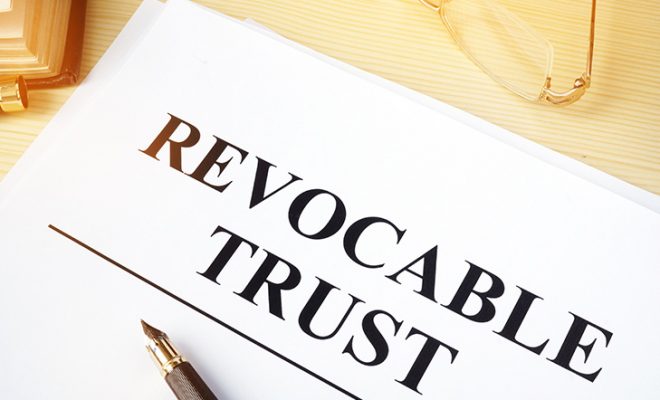7 Estate Planning Tips to Enter Retirement with Confidence

Retirement is a period of time in one’s life that is spent with limited resources and means. There are limited options to fall back on your job for financial security. Moreover, the possibility of working to earn some extra cash is a hard-pass for most people due to factors like age and health. This is why financial advisors recommend making a checklist before you enter your retirement years. This checklist can contain a number of things, depending on how old you are, how much money you need in retirement, or where you reside. But some common factors that all retirees can keep an eye out for are having enough funds to last you a lifetime, having some financial protection in the form of insurance, drafting a clear succession plan in case of a business, and making an estate planning guide to pass on your assets to your loved ones and live your retirement in peace.
The latter, i.e., estate planning is a particularly important component as it not only affects your legal heirs in your absence but can also alter the course of your retirement. Although estate planning has always been seen as a way of protecting your loved ones and future generations, it can, in fact, directly impact your standard of living in retirement. Therefore, it becomes good practice to follow an estate planning checklist to ensure complete financial security in your golden years.
Here are some estate planning tips for entering retirement with confidence:
-
Purchase a long term care insurance plan:
Life expectancy has increased considerably in the last few decades. The quest of mankind to prolong human life with medicine and technology is helping people live longer. However, a long life also brings with it added expenses, a longer retirement, and several health issues. Since chronic illnesses are at a high, the requirements and severity of care required by seniors has also increased. As of Feb 2021, there were an estimated 97,000 centenarians living in the US. The US also has the highest number of centenarians in the world. This figure is expected to rise by 589,000 by the year 2060. Irrespective of how long you live, the later years of your life will likely require long term care. According to Genworth’s 2019 Cost of Care Survey, more than one-third of senior citizens are expected to stay in a nursing home at some point in their life. As per the research carried out by the American Action Forum, 24 million people in America will need long-term care by 2030. In 2020, the number was roughly half of this at 14 million.
In addition to this, according to Health Affairs, 54% of people will not have enough money to cover the costs of long term care in retirement. A private room in a nursing home facility can cost $8,821 approximately for a month, whereas a semi-private room can cost $7,756 approximately for the same duration. Assisted living facilities may be more affordable comparatively but are still high at an approximate cost of $4,300 per month. Covering all of these costs out of your estate can diminish its value significantly. Moreover, since you will likely require long term care at a later stage in your retirement, you would have already consumed a major portion of your retirement savings by then.
Selling away your assets or using your liquid accounts on long-term care will leave nothing for your future generations. However, you can avoid this by purchasing a good long term care insurance plan that can cover all your costs. Long-term care insurance is one of the most essential tools you can have in retirement. Not only does it help you cover health-related costs, but it also ensures that you do not have to depend on anyone for help and support. Moreover, it keeps you from using your estate’s assets for nursing expenses. So, make sure to get one as soon as you can because the younger you are, the lower would be the premiums.
-
Purchase a life insurance plan:
The next thing on your estate planning checklist should be a life insurance plan. The most common reason to purchase a life insurance plan is to financially protect your loved ones in your absence. But not many people know that life insurance can also benefit you in estate planning. Firstly, the nominee on your life insurance plan trumps any other heir mentioned in the will. So, you can use life insurance to avoid disputes and disagreements between family members by clearly nominating the desired person on your policy. This can be a great way to pass on your estate to your family members in a clear, concise and hassle–free manner. Secondly, life insurance proceeds are free from income tax. So, the money from a life insurance policy will not be added to your nominee’s taxable income in the year they inherit it. Lastly, life insurance can help save on estate tax. Although life insurance proceeds are free from income tax, they can be subjected to estate tax. Typically, estate taxes can cost a lot to your legal heirs. In many cases, heirs can even be forced to sell off some of the inherited assets to pay the taxes levied on the total inheritance. However, life insurance plans provide a way out here.
Since the proceeds of a life insurance plan are not taxed, they can be passed on to your nominee entirely tax-free if you set up an irrevocable life insurance trust.
By doing this, one or multiple life insurance plans can be managed while you are alive as well as after your death. The life insurance policies in the trust will not be subjected to estate taxes. Moreover, you will also get to control how and when the death benefit can be used and by whom.
-
Increase your contributions to your retirement accounts:
Out of all your list of assets, retirement accounts can offer you and your loved ones the most benefits. Accounts like the 401(k) and the IRA (Individual Retirement Account) allow catch up contributions over the age of 50. As of 2021, the Internal Revenue Services (IRS) allows you to add an extra $6,500 per year to a 401(k) and an extra $1,000 per year to an IRA. This can be a great way to build your estate. Moreover, you can also consider turning your traditional accounts into Roth accounts to reduce your taxability in retirement. The withdrawals from a Roth IRA and Roth 401(k) are not taxed. As a result, you end up saving more money in your retirement, and your estate diminishes at a slower rate. Moreover, the rule of required minimum distributions does not apply to Roth accounts. So, you can let your money sit for as long as you want, thus preserving it for your spouse, children, or grandchildren who will inherit it after you.
-
Establish health, financial, and legal directives:
It is important to plan for any adverse situations in retirement, such as disability. An accident or illness can incapacitate you. In such a situation, a medical care directive can help. Such a directive states your wishes and how you want to be treated in case you are not able to make major health decisions anymore.
You can also use a power of attorney or an advance directive to make other major decisions. A financial power of attorney can be used to handle your financial affairs. This enables another person to take legal and financial decisions on your behalf. You can also consider a limited power of attorney if you do not want another person to have complete control over your finances. Limited power of attorneys contains exact details of how much authority you are willing to pass on to the other person.
But you should be very careful while giving the power of attorney. Make sure you select someone who you can trust with your financial and legal affairs. It also helps to pick someone who is unbiased, rational, and has no vested interest in your finances.
-
Plan the withdrawals of your Social Security benefits well:
Social Security benefits not only benefit you but can also benefit your spouse and children. There are three types of Social Security benefits:
- Retirement benefits: These benefits are given to the worker or owner (in this case, you). You can draw retirement benefits from the age of 62 or delay withdrawing them till the age of 70 to increase your Social Security check.
- Spousal benefits: These benefits are given to the spouse. This could be a current spouse, a widow/ widower, or a divorced/ ex-spouse. However, in the case of a current or ex-spouse, you should have been married for at least 10 years. Moreover, the ex-spouse must not have remarried before the age of 60.
- Survivor benefits: These benefits can be claimed by survivors other than the spouse like children in the unfortunate event of your death. The survivor should be younger than 18 to claim the benefits. The child can also be 19 years old and claim the benefits as long as the child is a full-time student in a school (high school or lower). Children older than 18 can claim the benefits only if they suffer from a disability.
Social Security survivor benefits are taxed but can still be a great estate planning tool, especially if you are passing on your benefits to a child. Firstly, most children do not earn enough for their income to be taxed. Moreover, if the Social Security survivor benefits are your child’s only taxable income, no tax will be levied on it anyhow.
-
Gift some parts of your estate to your children:
Gifting can be a great way to lower estate taxes and pass on your assets to your children without putting them through unnecessary hassles. However, keep in mind that the IRS charges a gift tax on the transfer of wealth or other highly valued assets. As of 2021, the gift tax limit has been set at $15,000 per annum for a single person and $30,000 per annum for a couple. So, you can give away assets worth less than these amounts without incurring any gift tax. In addition to this, there is also a lifetime limit of $11.7 million on gift tax. This is a considerably large amount, and most people are able to gift valuable assets out of their estate without incurring any gift taxes. If you are stepping into retirement, you can consider this strategy to avoid taxes and at the same time help your children. For instance, a lot of people use the gift tax exemption to pass on real estate assets like a home to their children. You can also use the lifetime exemption limit when you are selling your assets. For example, if your children prefer to buy your assets rather than inheriting them, you can sell them at a lower cost. The difference in the fair market value and the sale value will be taxed by the IRS but it can be exempted under the lifetime exemption limit.
You can also use a Qualified Personal Resident Trust (QPRT) that allows you to transfer a house to a future beneficiary. This way you can live in the house for as long as you wish to. After which, the house will be transferred to the beneficiary. The upside here is that the value of the house will freeze the day the trust is formed. As a consequence, the tax liability that would have likely accrued if you were to wait to pass on your house to a child after your death will also be reduced.
-
Take professional estate planning guidance from a financial advisor:
If you want to enter retirement with confidence, you should be confident of every estate planning decision that you take. This can be made possible if you take some estate planning guidance from a professional. Estate attorneys, tax planners, and financial advisors can help you navigate through your estate planning list of assets, make decisions that lower your tax output, and ensure satisfaction among your heirs. Large estates can be particularly hard to manage and pass on, and a professional outlook can simplify things to a large extent.
Other areas where a professional can help include establishing revocable and irrevocable trusts, drafting a will to avoid probate, appointing guardians for minor children, planning gifts and charity, and more.
To summarize
Estate planning is an important part of the retirement planning process. And only a competent estate planning guide that covers all aspects and possible situations can offer you confidence and peace of mind in retirement. So, make sure to spend adequate time planning your estate, drafting your will, and setting up trusts whenever and wherever necessary. Keep all your assets and important documents safely and let your beneficiaries know of their whereabouts. In addition to the estate planning tips mentioned above, you may also seek some professional assistance from a financial advisor to help secure your estate plan.










